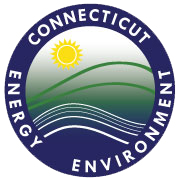 | |
| Environmental protection overview | |
|---|---|
| Formed | July 1, 2011 |
| Preceding agencies |
|
| Jurisdiction | Government of Connecticut |
| Headquarters | 79 Elm Street Hartford, Connecticut 06106-5127 |
| Minister responsible |
|
| Deputy Ministers responsible |
|
| Website | portal |
The Connecticut Department of Energy and Environmental Protection (DEEP) is a state agency in the US state of Connecticut. The department oversees the state's natural resources and environment and regulates public utilities and energy policy. It is headquartered in Hartford.
Contents
The agency was created on July 1, 2011, in recognition of the interconnectivity of effective energy and environmental policies. Connecticut Governor Dannel P. Malloy, in conjunction with the Connecticut General Assembly, merged the Connecticut Department of Environmental Protection, the Connecticut Department of Public Utility Control, and an energy office within the Office of Policy and Management to create a single agency of the Department of Energy and Environmental Protection. [1] Daniel C. Esty was appointed as commissioner of the DEEP upon its creation in July 2011. Rob Klee served as commissioner of the department from January 2014 through December 2018. Katie S. Dykes has served as commissioner since January 2019.
The law enforcement branch of DEEP is the Connecticut State Environmental Conservation Police. Officers were previously known as game wardens. [2]